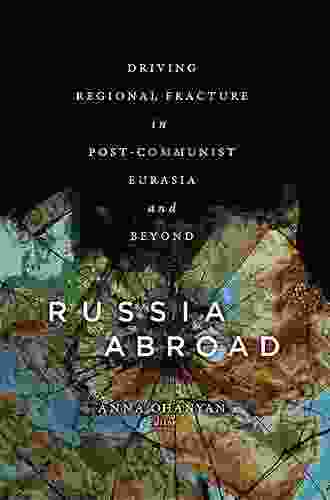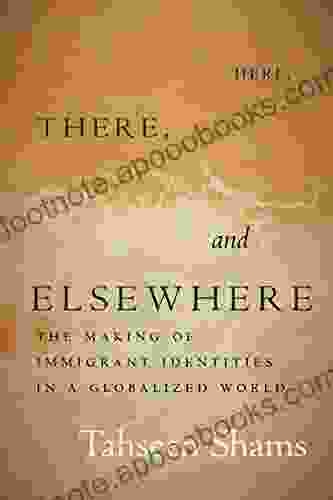Driving Regional Fracture in Post-Communist Eurasia and Beyond: A Comprehensive Exploration

The collapse of the Soviet Union in 1991 marked a watershed moment in global politics, ushering in a period of profound transformation for the nations of Eurasia. The transition from a centrally planned to a market economy, the emergence of new political entities, and the resurgence of ethnic and religious identities have all contributed to a complex and often volatile landscape.
In the book "Driving Regional Fracture in Post-Communist Eurasia and Beyond," a team of leading scholars examines the factors that have driven regional fracture in this vast and diverse region. They argue that economic disparities, political instability, and ethnic and religious conflicts have all played a significant role in creating a climate of division and insecurity.
5 out of 5
| Language | : | English |
| File size | : | 4550 KB |
| Text-to-Speech | : | Enabled |
| Screen Reader | : | Supported |
| Enhanced typesetting | : | Enabled |
| Print length | : | 299 pages |
The book is divided into three parts. The first part provides a historical overview of the region, tracing the roots of regional fracture back to the Soviet era. The second part examines the economic, political, and social factors that have contributed to fracture since the collapse of the Soviet Union. The third part explores the implications of regional fracture for security and stability in Eurasia and beyond.
One of the key arguments of the book is that economic disparities have been a major driver of regional fracture in Eurasia. The transition to a market economy has led to significant inequalities between different regions, with some areas experiencing rapid growth while others have been left behind. This has created a sense of resentment and alienation among the populations of less developed regions.
Political instability has also contributed to regional fracture in Eurasia. The collapse of the Soviet Union led to the creation of a number of new states, many of which have struggled to establish stable and democratic governments. This has created a vacuum of power that has been filled by authoritarian regimes, ethnic militias, and other non-state actors. These groups have often used ethnic and religious tensions to mobilize their supporters and consolidate their power.
Ethnic and religious conflicts have also been a major source of regional fracture in Eurasia. The collapse of the Soviet Union led to the resurgence of ethnic and religious identities, and these have often been used to justify violence and discrimination. In some cases, these conflicts have escalated into full-scale wars, such as the conflicts in Nagorno-Karabakh and Chechnya.
The implications of regional fracture in Eurasia are far-reaching. It has led to a decline in security and stability in the region, and it has also made it more difficult for countries to cooperate on common challenges. In addition, regional fracture has had a negative impact on economic development and human rights.
The book "Driving Regional Fracture in Post-Communist Eurasia and Beyond" is a timely and important contribution to our understanding of this complex and challenging region. It provides a comprehensive analysis of the factors that have driven regional fracture in Eurasia, and it offers valuable insights into the implications of this fracture for security and stability in the region and beyond.
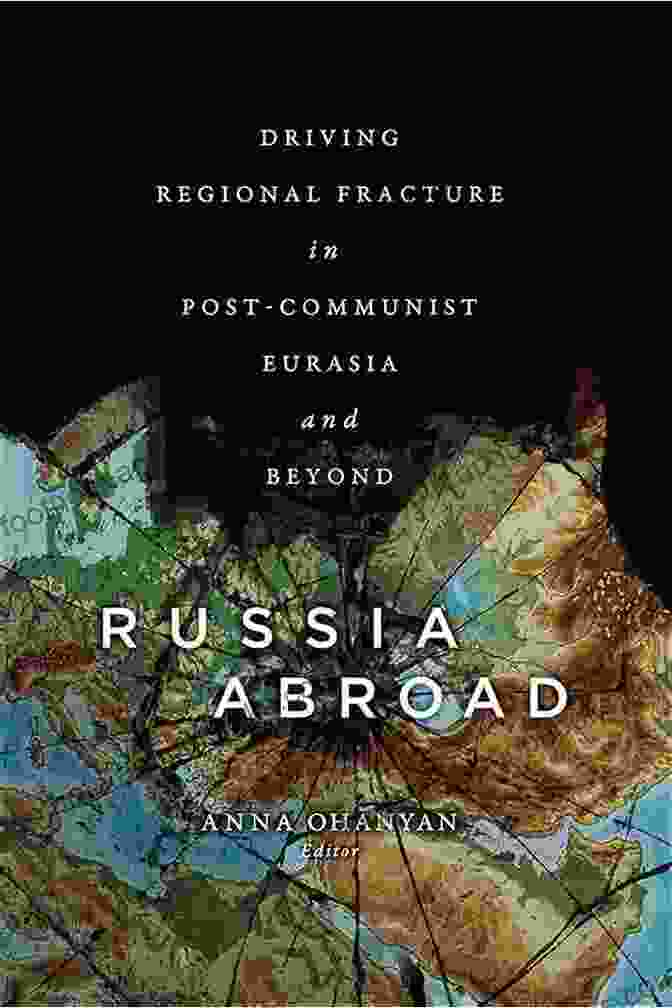
About the Authors
The book "Driving Regional Fracture in Post-Communist Eurasia and Beyond" is edited by Marlene Laruelle and Gwendolyn Sasse. Marlene Laruelle is a Professor of International Relations at George Washington University. Gwendolyn Sasse is a Professor of Political Science at the University of Oxford.
The book features contributions from a team of leading scholars, including:
- Ariel Cohen
- Svante Cornell
- Lilia Shevtsova
- Alexander Cooley
- Paul Goble
- Richard Sakwa
- Tomila Lankina
- Agnia Grigas
- Olga Oliker
- Stephen Blank
5 out of 5
| Language | : | English |
| File size | : | 4550 KB |
| Text-to-Speech | : | Enabled |
| Screen Reader | : | Supported |
| Enhanced typesetting | : | Enabled |
| Print length | : | 299 pages |
Do you want to contribute by writing guest posts on this blog?
Please contact us and send us a resume of previous articles that you have written.
 Book
Book Novel
Novel Page
Page Chapter
Chapter Text
Text Story
Story Genre
Genre Reader
Reader Library
Library Paperback
Paperback E-book
E-book Magazine
Magazine Newspaper
Newspaper Paragraph
Paragraph Sentence
Sentence Bookmark
Bookmark Shelf
Shelf Glossary
Glossary Bibliography
Bibliography Foreword
Foreword Preface
Preface Synopsis
Synopsis Annotation
Annotation Footnote
Footnote Manuscript
Manuscript Scroll
Scroll Codex
Codex Tome
Tome Bestseller
Bestseller Classics
Classics Library card
Library card Narrative
Narrative Biography
Biography Autobiography
Autobiography Memoir
Memoir Reference
Reference Encyclopedia
Encyclopedia Cassandra L Thompson
Cassandra L Thompson Shaun Bowler
Shaun Bowler Sean Williams
Sean Williams Sarah L Leonard
Sarah L Leonard Ruth Phillips
Ruth Phillips Khurrum Rahman
Khurrum Rahman Terry Golway
Terry Golway Catalin Pogaci
Catalin Pogaci Cedric J Robinson
Cedric J Robinson Kathleen Mapes
Kathleen Mapes John Tanner
John Tanner Charles Foti
Charles Foti Caroline Criado Perez
Caroline Criado Perez Ernest Albert Savage
Ernest Albert Savage Jacob Eric Stathers
Jacob Eric Stathers Carole Satyamurti
Carole Satyamurti Christopher S Browning
Christopher S Browning Mary Lois Kissell
Mary Lois Kissell Kyriakos Anastasiadis
Kyriakos Anastasiadis Dale R Herspring
Dale R Herspring
Light bulbAdvertise smarter! Our strategic ad space ensures maximum exposure. Reserve your spot today!
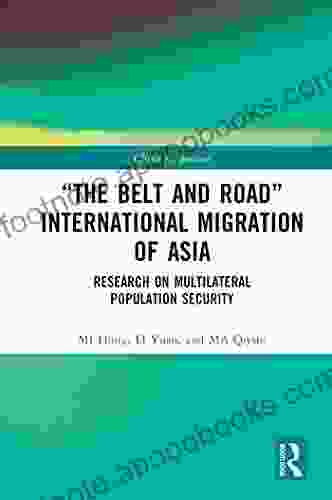
 Russell MitchellUnveiling the Global Impact of the Belt and Road Initiative: Exploring...
Russell MitchellUnveiling the Global Impact of the Belt and Road Initiative: Exploring... Dallas TurnerFollow ·16.7k
Dallas TurnerFollow ·16.7k Yasushi InoueFollow ·18.1k
Yasushi InoueFollow ·18.1k Lord ByronFollow ·16.3k
Lord ByronFollow ·16.3k Jesus MitchellFollow ·8.8k
Jesus MitchellFollow ·8.8k Cody RussellFollow ·5.5k
Cody RussellFollow ·5.5k Geoffrey BlairFollow ·17.4k
Geoffrey BlairFollow ·17.4k Felipe BlairFollow ·19.7k
Felipe BlairFollow ·19.7k Thomas HardyFollow ·14.5k
Thomas HardyFollow ·14.5k

 Angelo Ward
Angelo WardThe Original Home School: A Journey of Love, Learning,...
In the annals of...
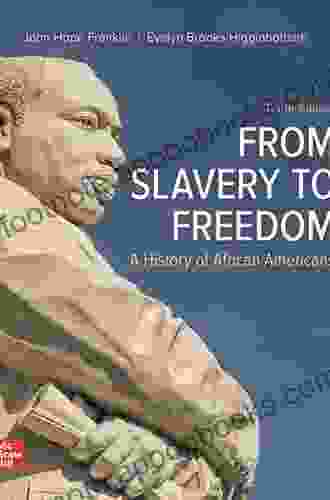
 Heath Powell
Heath PowellAfrican American Education in Slavery and Freedom: The...
The history of African...

 Jamal Blair
Jamal BlairEmbrace the Wonder and Simplicity of Charlotte Mason...
Discover the...

 Cason Cox
Cason CoxUnveiling the Truth: A Mother's Courageous Journey to...
A Mother's Love Unbound: The Power of...

 Jamal Blair
Jamal BlairOver 100 Original Aussie Bush Ballads: A Journey Through...
Embark on a literary odyssey into the...
5 out of 5
| Language | : | English |
| File size | : | 4550 KB |
| Text-to-Speech | : | Enabled |
| Screen Reader | : | Supported |
| Enhanced typesetting | : | Enabled |
| Print length | : | 299 pages |


